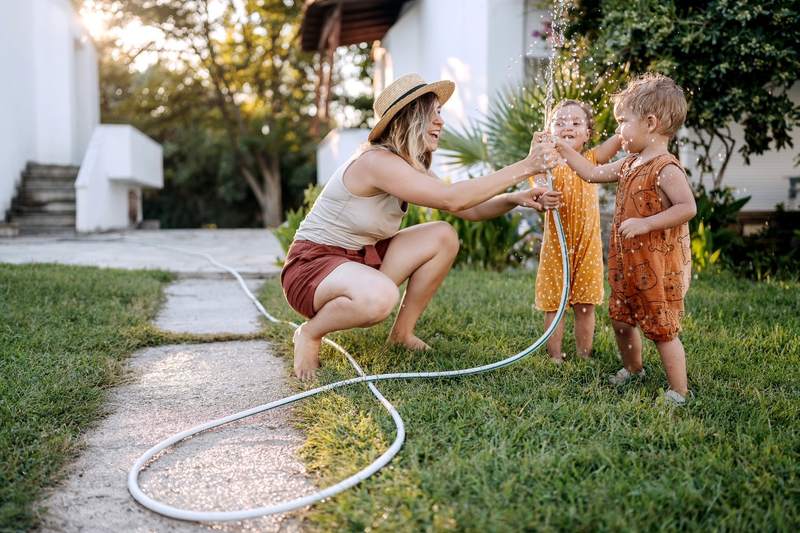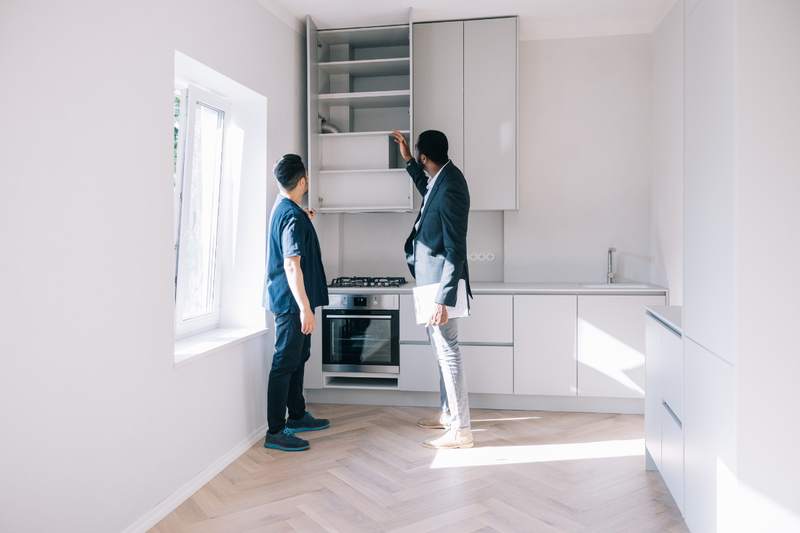It’s possible to get a great deal on a home sold at auction — but there also are risks and potential disadvantages to consider. To help you learn how the process works, read our step-by-step guide to buying a home at auction.
Key Takeaways:
- Homes are sold at auction because they have been foreclosed on or because the owner hasn’t been paying their property taxes.
- Before bidding on a home, it’s a good idea to understand the different types of auctions and the steps involved in bidding on and buying a home at auction.
- Buying a home at auction comes with pros and cons, and it’s important to weigh the potential risks against any potential discount.
Understanding Home Auctions
A real estate auction is a public sale of a property, where interested buyers submit their offers as bids. The buyer who submits the highest bid wins the auction and can buy the home for that price.
The specifics of buying a home at auction vary widely. The homes being sold often have been foreclosed on or are indebted properties that are offered as is by lenders or government agencies. It’s important to know as much as you can about a property before making a bid on it.
Auctions can be held either in person or online. Auctions often require bidders to register in advance and provide proof of funds that show they can pay for the home if they win.
Why Houses Are Sold at Auction
There are two main reasons why some houses are sold at auction: foreclosure and property tax default.
Foreclosure
Foreclosure is when a lender seizes ownership of a property from an owner who has defaulted on their mortgage. Foreclosure typically begins once payments on a loan are at least 120 days delinquent. If the owner is unable to pay the amount due or come to an agreement with the lender on repaying the loan, the lender takes legal ownership of the home and can sell it — often at auction — to recoup its losses on the loan.
Property tax default
A property tax defaultoccurs when a homeowner fails to pay their property taxes. The taxing authority may seize full ownership of the home or place a lien on it. The lien or the home itself may be sold at auction to recoup the taxes owed on it.
Other reasons
Properties also may be sold at auction because they incurred liens for unpaid homeowners association dues, the owner has federal tax debts, there was a legal dispute related to the property, or the property is owned by the bank, says D.J. Olojo, managing director of ASO Custom Homes in Atlanta and host of The Foreclosure Fix podcast.
Other times, a home is sold at auction to realize the highest possible sales price. “Some owners prefer to utilize auction websites to achieve the highest possible exposure, limit multiple property showings, and make the process competitive,” Olojo says. “The live aspect of an auction has a tendency to make some people overpay.”
3 Types of Home Auctions
Auctions come in three varieties.
1. Absolute auction
This type of auction has no minimum bid, and the highest bidder wins regardless of how much they offer. All sales are final, and the seller can’t back out even if the highest bid is relatively low.
2. Minimum-bid auction
This type of auction has a minimum bid that buyers must meet or exceed to bid on the property. This amount is typically the balance that is still owed to the lender or the taxes that are still owed.
3. Reserve auction
The seller sets a minimum bid but doesn’t reveal it to bidders. That means bids come for the buyer to consider more like an offer for the home. Sellers do this to encourage higher bids.
2 Types of Bids
In addition to types of auctions, there are types of bids.
1. Open bids
Openbids are known to everyone at the auction, so everyone knows exactly what the current bid to beat is. This may help you get a good deal because you know what others are bidding and what you can afford. The downside is that it also can result in a bidding war that will quickly push the price out of your budget range.
2. Blind bids
Blind bids are kept secret, so you won’t know how much others are offering for a property. Blind bidding can benefit the seller because the most interested parties may bid higher to avoid being outbid.
How To Buy a House at Auction in 6 Steps
Once you’re ready to buy, here’s a step-by-step plan for buying a house at auction.
1. Do your research
If you’re interested in buying a home at auction, you should start by getting familiar with the value of homes in the area and how much comparable homes have sold for recently. You’ll also want to collect any sales materials that are offered and understand the auction rules.
If you know what repairs the home needs, be sure to factor those costs into your budget. For example, suppose you’re looking for a four-bedroom home in a neighborhood where similar homes sell for $300,000. You come across a foreclosed four-bedroom home that’s being sold at auction, and you estimate it needs $40,000 of repairs. If you bid $260,000, you’ll break even, assuming market values hold, and your repairs don’t go over budget. If you’re looking for a deal or to make money on the investment, you could bid less and risk losing out to a higher bid. If you bid more than $260,000, you’ll end up paying more for the fixer-upper than you would for a comparable well-maintained home.
2. Conduct a title search
A title search will scan public records to determine whether there are any claims or liens against the property. If there are, you’d inherit these liens when you purchase the home. This is why lenders typically require a title search to get a mortgage. If the terms of the auction indicate that a title report won’t be included, then Olojo highly recommends you pay for one yourself before making the purchase to protect yourself.
3. Secure financing
One of the biggest downsides of buying a house at auction is that you typically have to pay in full upfront with cash. However, here are some loan options that can help you meet those requirements:
- Hard cash loans. These loans come with higher interest rates and short terms, which means you’ll need to repay them relatively quickly. Hard cash loans can be a helpful option if you’re looking to flip the house and sell it quickly to repay the loan and maybe make a profit.
- Delayed financing. With this option, you’ll purchase the home in full and then immediately take out a mortgage in the form of a cash-out refinance. That way, you’ll get back a big chunk of the money you paid upfront. However, delayed financing will require an appraisal and inspection. If the home is in rough shape, you may not get approved.
4. Find a local home auction
Take a look at local real estate auction websites and your county recorder’s office to see what’s available. These sites typically list homes that are scheduled to be auctioned and include the date and location. Gather as much information as you can about the terms of the auction, so you know the potential risks.
“The most important tip is knowing the type of auction you are dealing with,” Olojo says. “You need to read the fine print and know what you are receiving when you tender money. For example, some auctions allow you to have due diligence after the auction process and guarantee to provide you with the insurable title. Other auctions don’t make any guarantees, and once you provide your money, you get a deed with no warranties.”
5. Attend the auction and bid carefully
Before you attend an auction — whether in-person or virtual — you need to have your financing lined up and your budget set. If you’re in person, this may require to you bring a cashier’s check with you. If the auction is online, then you may need to pay a deposit ahead of time. When it comes time to bid, make sure you don’t exceed your budget limit. Even if you’re getting a discount, it’s not a win if you’re taking on a purchase that’s more than you can afford.
6. Close on the sale
Most auctions will require the winning bidder to make at least the minimum deposit on the purchase that the auction holder has set — known as earnest money. You’ll also pay any additional auction fees and bidding fees. A cashier’s check is typically the preferred payment method.
Tips for Successful Bidding
If you’ve never attended an auction before, the process might seem intimidating. Here are some tips on how to help you make your bid:
- Set your limit. If you’re bidding in person and facing competition, it’s possible to get caught up in the moment and bid more than you can afford. Before you make a bid on a home, be sure you don’t overextend yourself and make a purchase that you don’t have to money to cover.
- Research comps in advance. The price you bid should reflect recent home sale prices in the area. Research what comparable properties have sold for to give you an idea of what a reasonable figure would look like.
- Factor in repair costs. Even if you haven’t been able to see the inside of the home, you should assume that a foreclosed home is going to need repairs. A homeowner who is under financial strain may not have had the money to maintain the home. Build the cost of potential repairs into your budget when deciding how much to bid.
Pros and Cons of Buying a House at Auction
Be sure to weigh the advantages and disadvantages of buying a home at auction.
Pros and Cons of Buying a House at Auction
| Pros | Cons |
| You may get a deal because the lender or tax authorities selling the home are most interested in recouping their losses. | Homes are usually sold as is and may need more extensive repairs than you expect. |
| Since auction homes usually are not included in most real estate listings, you may be able to avoid competition from other buyers. | Home auctions typically require winners to pay in cash. |
| If the owner works out a payment plan with the lender before you get the title, you can lose the house. | |
| Competition from other bidders could lead you to pay more than you can afford for a home. |
FAQ: How To Buy a House at Auction
Here are answers to common questions about buying a house at auction.
The bid is the price you’re offering for the home. You’ll also have to pay closing costs — typically 2% to 5% of the purchase price — related to the legal transfer of ownership and funding of your mortgage, as well as a down payment. You also may have to pay a buyer’s premium, which will be either a percentage of the winning bid or a flat fee. That and any other fees specific to the auction will be explained when you register to bid at auction.
Once you register for an auction, you’ll be informed what the rules for bidding are. In-person auctions usually are led by an auctioneer and can move fast. Attending a few auctions in person before bidding is one way to get familiar with the process. First-timers likely will find online auctions easier to observe and navigate.
Bottom Line on How To Buy a House at Auction
Buying a home at an auction may get you a great deal — but it’s not guaranteed. While lenders might be eager to offload foreclosed homes to recoup their costs, there also may be major problems with the home that you won’t find out about until after the deal closes. Before bidding on a home at auction, but sure to do as much research as you can about the property, and understand the risks involved.
More From LowerMyBills:
- How To Make an Offer on a House
- Ways To Strengthen Your House Offer To Stand Out
- Below or Above List Price? How Much To Offer on a House
- Can You Make an Offer on a Home That’s Under Contract?
- How To Find Rent-to-Own Homes
- How To Negotiate Prices as a Buyer
- How To Prepare To Buy a House in 1 Year
- How To Buy a House With a Friend






